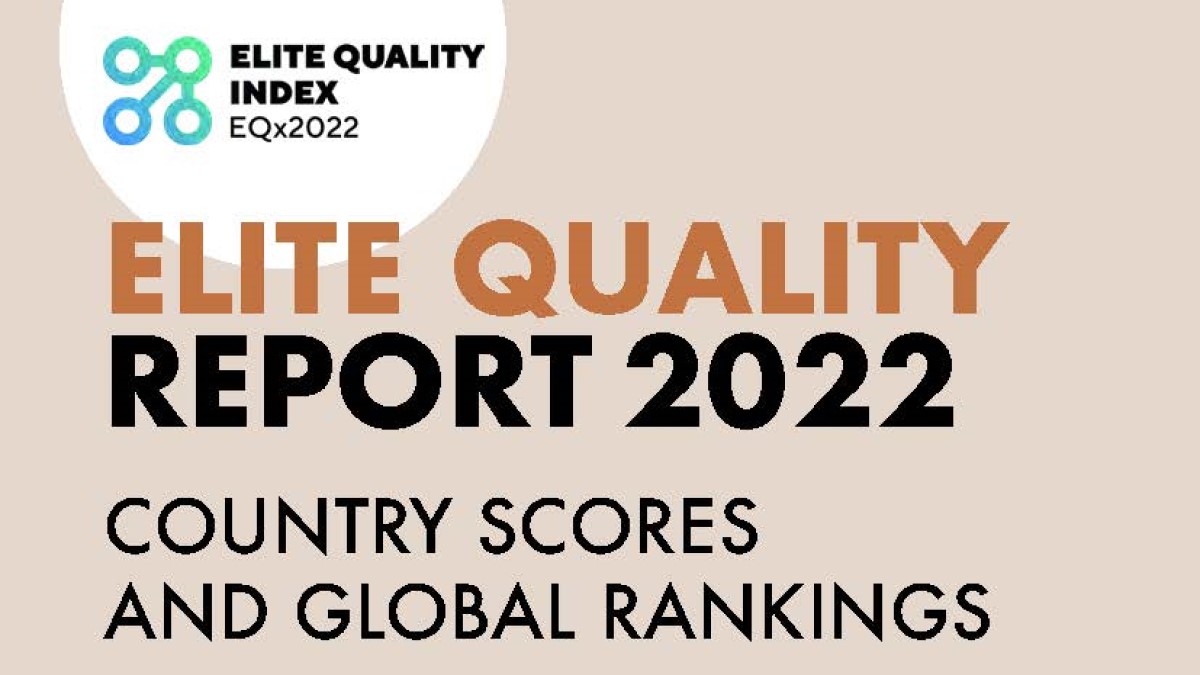Singapore’s elites create the most value for society

“Elites” is often a term imbued with negative connotations.
Generally thought of as those who wield power or influence, individuals within the upper echelons of society may take on varying roles, ranging from simply setting an example for others to follow to asserting power and spearheading decisions that affect large numbers of people. The effect they have on their community depends on their position and the context within which they operate. As such, some may view elites as out-of-touch with everyday people, while others may see them as a necessary force for driving society.
Started in 2020, the Elite Quality Index measures countries based on whether their elite business models create value or are rent seeking, which capitalise on extracting value from others without creating any value themselves. Based on research at the University of St Gallen together with SMU and other academic partners, the Index posits that elites are an important part of any society because they help drive human and economic development. They also contribute to the well-being in their communities by creating value for everyone around them, not just themselves.
Conversely, the study also explores if elites capture more value for themselves rather than creating value for their community. For example, as the Elite Quality Index for 2022 (EQx2022) report states, “rent seeking models are unsustainable, and in a world as stretched and challenged as it is today, they might be the straw that break the camel’s back”. Often, rent seeking businesses can be harmful to the economy because they create inefficiencies and hinder free market competition.
Rather than directly measure the performance of elites, the Index evaluates the amount of value created by their business models, to better gauge the level of inclusive economic and human development. Based on areas of Economic Power, Economic Value, Political Power and Political Value, the Index aims to determine the quality of the elites in any given country through its global rankings.
This year’s EQx2022 reveals that elites in Singapore have created the most value as compared to their global counterparts, even during the pandemic. It received high scores in areas such as the government’s responsiveness to change, ability to control corruption, availability of venture capital finance and support for entrepreneurship. Moreover, it boasts high food security, low homicide rate, low natural resource rents, trade freedom, high foreign investment, and health efficiency. Singapore has also emerged from the COVID-19 pandemic with the lowest age-adjusted fatality rate. This is the third year running that the city-state has topped the index.
“Singapore’s excellent performance in the EQx2022 reflects the central role of Singapore’s state capitalist model which focuses on supercharging economic growth through economic globalization and channelling profits into social returns and communitarian investments,” says Alwyn Lim, SMU Associate Professor of Sociology.
“The country’s high performing elite Value Creation model has allowed the state to emerge from the COVID-19 pandemic relatively unscathed, as it anticipates reconnecting with the global networks that it is highly dependent on.”
With Switzerland coming in second and Estonia, Sweden and Israel ranked within the top ten countries, smaller countries displayed greater resilience during COVID-19.
The 2022 report also highlighted the need for businesses to consider value creation for future generations, be it inclusive access to healthcare and education, or refrain from models that would transfer value away from their successors — such as those that degrade the environment or result in long-term debt. Ethically, current business models need to avoid burdening future generations with environmental and economic costs — a move that would be detrimental to the fundamental sustainability of society.
A collaborative endeavour that includes 30 contributions from 36 authors from around the world, the EQx2022 examined 120 indicators — including gender income gap, trade freedom and homicide rate, and established scores and rankings for 151 countries. In fact, its dataset has already been used in peer-reviewed research. Ultimately, its findings shed light on the future of societies, and serve as a resource for elite coalitions such as businesses, governments, and policymakers to understand how their actions affect society at large.


